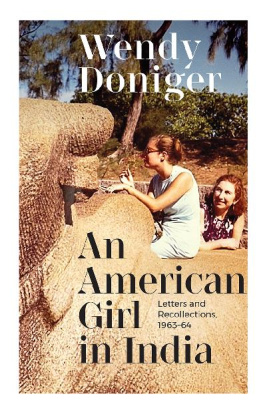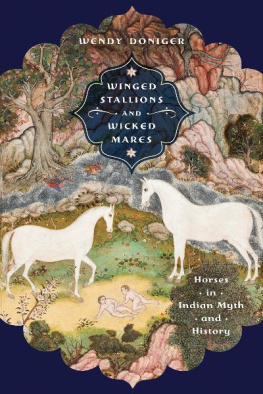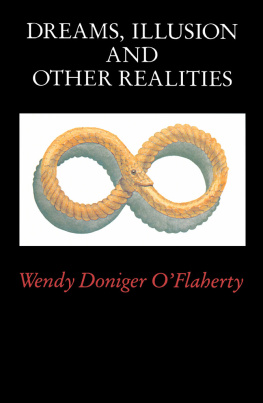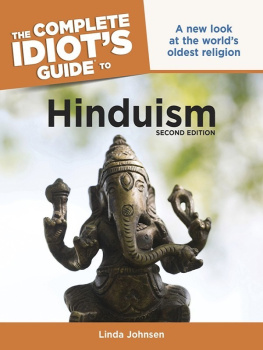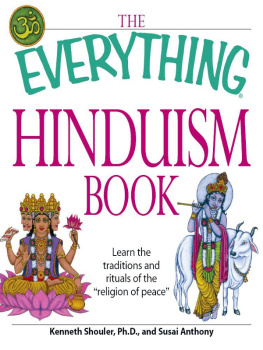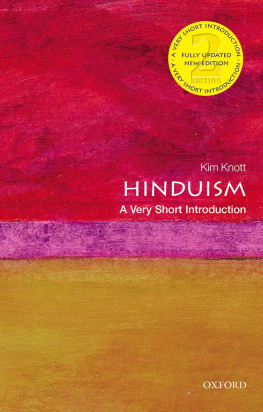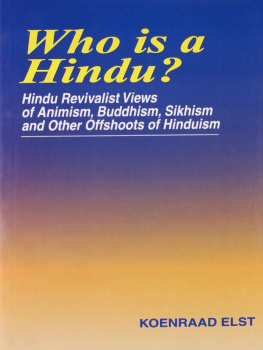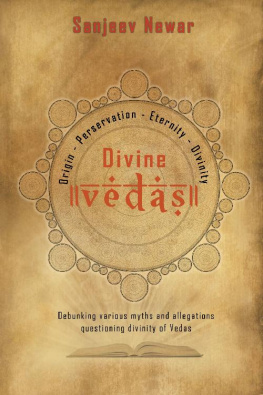ON HINDUISM


ON
HINDUISM
~
Wendy Doniger



Oxford University Press is a department of the University of Oxford. It
furthers the Universitys objective of excellence in research, scholarship, and
education by publishing worldwide.
Oxford New York
Auckland Cape Town Dar es Salaam Hong Kong Karachi
Kuala Lumpur Madrid Melbourne Mexico City Nairobi
New Delhi Shanghai Taipei Toronto
With offices in
Argentina Austria Brazil Chile Czech Republic France Greece
Guatemala Hungary Italy Japan Poland Portugal Singapore
South Korea Switzerland Thailand Turkey Ukraine Vietnam
Oxford is a registered trade mark of Oxford University Press in the UK and
certain other countries.
Published in the United States of America by
Oxford University Press
198 Madison Avenue, New York, NY 10016
Wendy Doniger 2014
All rights reserved. No part of this publication may be reproduced, stored in a retrieval system, or transmitted, in any form or by any means, without the prior permission in writing of Oxford University Press, or as expressly permitted by law, by license, or under terms agreed with the appropriate reproduction rights organization. Inquiries concerning reproduction outside the scope of the above should be sent to the Rights Department, Oxford University Press, at the address above.
You must not circulate this work in any other form
and you must impose this same condition on any acquirer.
Library of Congress Cataloging-in-Publication Data
Doniger, Wendy.
[Essays. Selections]
On Hinduism / Wendy Doniger.
pages cm
ISBN 978-0-19-936007-9 (hardback : alk. paper) 1. Hinduism. I. Title.
BL1210.D66 2014
294.5--dc23
2013038952
9 8 7 6 5 4 3 2 1
Printed in the United States of America on acid-free paper
CONTENTS
INTRODUCTION
FOREWORD INTO THE PAST
How can I tell what I think till I see what I say?
E.M. Forster, Aspects of the Novel (1927), .
If I had to live my life again, Id make all the same mistakes, only sooner.
Tallulah Bankhead
HOW I CAME TO STUDY HINDUISM
M y heart always sinks when a stranger at a dinner party or a conference asks me, brightly, How did you [ever] get interested in the study of India? as if this were some weird perversion that required an elaborate explanation. But perhaps the moment has finally come to answer this question properly, in the foreword to a book about India, and one of the worlds great religions, that spans my entire academic life.
It all began when I was about twelve years old, and my mother gave me a copy of E.M. Forsters A Passage to India. It changed my life. At a time when I was consumed by religious questions, Forster persuaded me (wrongly, I now know) that everyone in India was constantly thinking and talking about nothing but religion, and that they had the answers. I found a copy of Robert Humes translation of the Upanishads, and was stunned by their beauty and wisdom.
My mother also gave me Rumer Goddens The River and Mooltiki, and Aubrey Menens wicked satire on the Ramayana, and Kiplings Just So Stories and Jungle Book and, later, Kim. She was an amateur Orientalist in her own way, and was crazy about Angkor Wat (which she pronounced, in the Viennese manner, Angkor Vat); she cherished her copy of the great four-volume work on the temples of Angkor published in 1930 by the cole Franaise de lExtrme Orient. All her life she wanted to visit those temples, and she finally did. When I went to live in India for a year, she came to visit me and went on by herself to see Angkor despite the rumbles of war (it was 1964), and when she was dying, thirty years later, she told me that that had been the high point of her whole life. That old French book remained a kind of icon to me throughout my youth; when my mother died, it came to me, and it still holds for me the mystery and glamour that it had then. I passed it on (together with my mothers politics) to my son, Michael Lester OFlaherty (born in 1971), who began his graduate study of the history of Southeast Asia at Cornell in 1995. And I finally visited Angkor Wat, too, just this past January of 2012. But Im getting ahead of my story.
Barely into my teens, I discovered that I loved the glorious excess of things Indian: I preferred Indian painting, with its infinite detail, to Renaissance paintings; I preferred Indian temples, with their rococo carvings, to the great cathedrals of Europe, let alone the sleek Bauhaus that was admired in my day. I rebelled against the moderation and restraint of what was called good tasteclothing of beige, mauve and basic blackand delighted in the reds and purples and oranges and yellows of Rajasthani silks and cottons. I liked Indian music, particularly the sarod, which moaned like a human voice as it slid from note to note, far better than Western music where every note had to fit into a rigid slot. My favourite food was Indian food, which I liked eating with my hand(s); I had always hated knives and forks. I watched Satyajit Rays Pather Panchali (1955) more times than I can now remember; it was the most beautiful film I had ever seen.
But most of all, I loved Hindu mythology, the stories of the gods; I particularly loved the way that the stories were told and retold, over and over, each time differently. I had been, from very early childhood, enchanted by stories about other worlds, fairies and gods, a fact that is corroborated by a large portrait of me that my uncle, Harvey Haines, painted (badly) when I was just five years old: Im holding a fairy tale castle, Disney-turreted and covered with swirls of oil paint patterned like Florentine endpapers, and Im reading a book that begins, Once upon a time In high school I continued to flee from what I had come to regard as the excessive reality of the real world by studying Latin and, in unofficial sessions with my devoted Latin teacher, Anita Lilenfeld (now Seligson), ancient Greek. She casually mentioned to me that Sanskrit, closely related to Greek and Latin, was the language of ancient India, which meant to me the language of A Passage to India (and, by extension, Angkor Wat). By then I was thoroughly hooked, and I chose to go to Radcliffe, rather than Swarthmore, largely because I could learn Sanskrit at Harvard.
And so I began the study of Sanskrit as a seventeen-year-old freshman in 1958. Surely the long shadow of Angkor fell over me as I sat in the dusty little room at the top of Widener library, studying Sanskrit with Daniel H.H. Ingalls. He taught me not only Sanskrit but Indian literature, Indian history, Indian religion, and something else, harder to define, something about the pleasure of scholarship, the elegance of the written word, the luxury of the world of the mind.
So I was trained as a Sanskritist. But I was not a real Sanskritist; real Sanskritists (Ingalls was not at all typical) are cold-blooded pedants interested only in verbs and nouns, and I was a hot-blooded ex-ballet dancer still interested in stories. Real Sanskritists, on two continents, have been known to turn and leave a room when I entered it. I looked elsewhere for my intellectual nourishment. I roomed with an anthropologist, Alice Kasakoff, whom the Radcliffe authorities had assigned to me on the very first day; in those times of unspoken quotas, Jewish girls somehow just seemed to end up with Jewish roommates. Alice introduced me to her colleagues (Vogt, Kluckholn, the Whitings, Beidelman, Mayberry-Lewis) and instilled in me an enduring admiration for anthropologists. I also, in the manner of old-fashioned Sanskritists and Orientalists, studied Greek with Zeph Stewart, Sterling Dow, John Finley and Adam Parry; English literature with Reuben Brower, William Alfred and Harry Levin; and folklore with Albert Lord.
Next page

